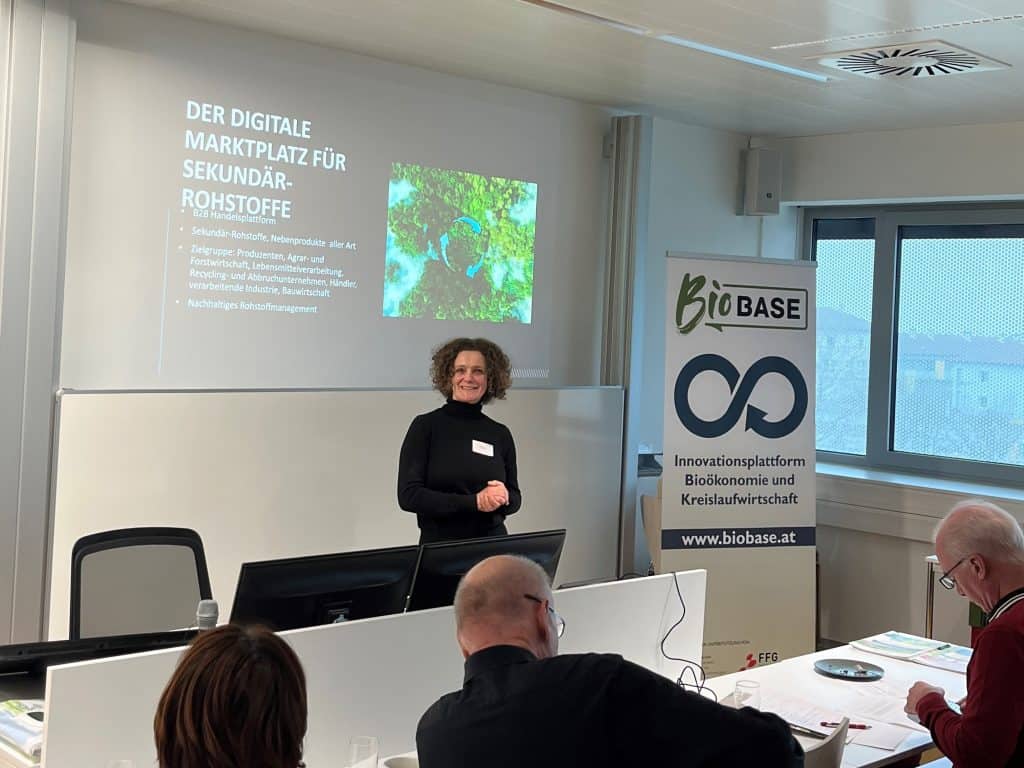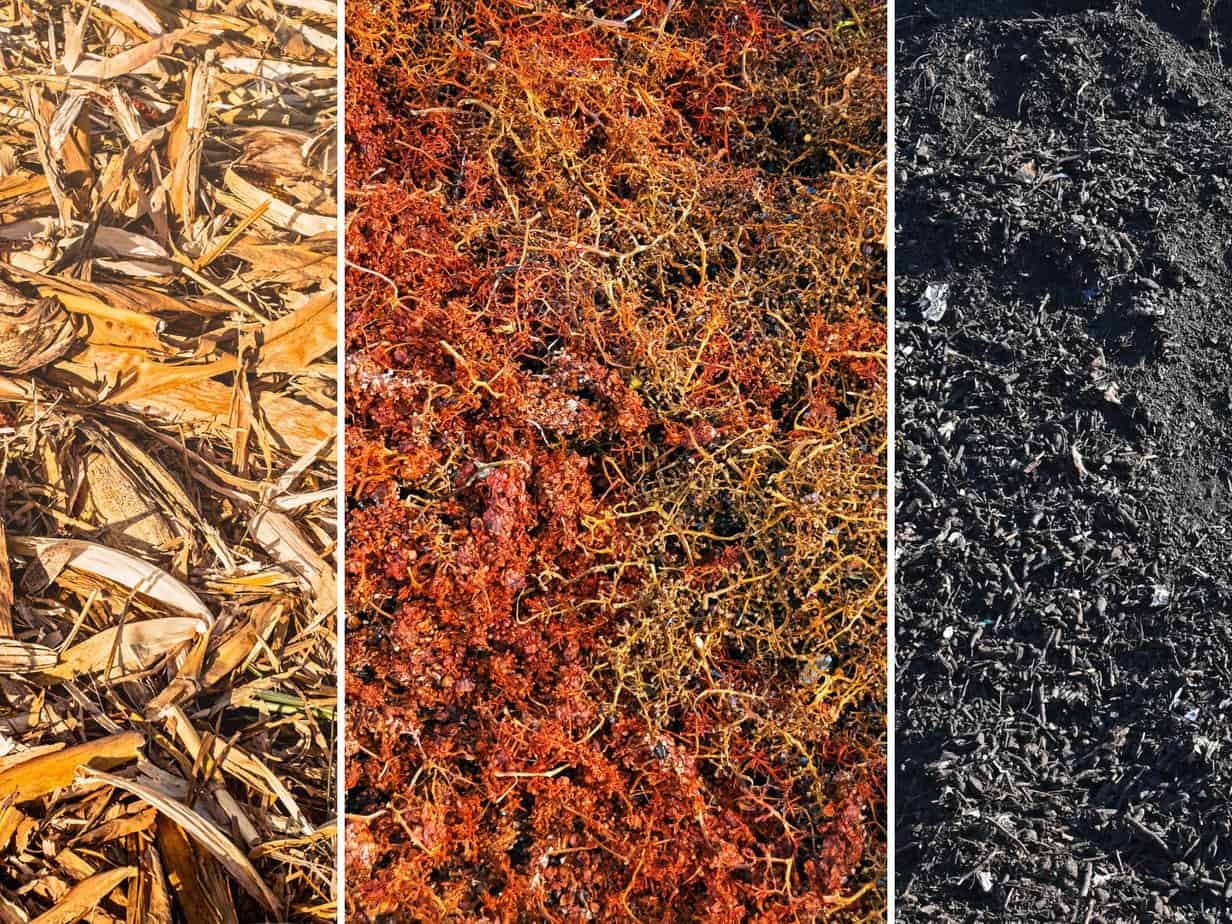New paths for a circular food industry. Innovative solutions for waste avoidance and circular economy in food production were the focus of a series of events organised by BioBase GmbH and the Province of Lower Austria.
Strengthening regional value creation through biogenic products is one of the key factors of the Austrian circular economy strategy. The “circular economy in food production” series of events takes this into account and has focussed on sustainable and future-oriented practices in primary agricultural production, for by-products of food processing and in the distribution and marketing of products in three workshops so far. Brigitte Reich was able to present our digital marketplace for biogenic residues as an example of Best Practice.
Setting the course for sustainable food production
The first workshop on 11th September was aimed at experts from industry and science. 30 participants discussed challenges and innovative potential on the focal topics of technology, logistics and legislation. It became clear that technological expertise, external investment and a willingness to change are crucial for the high-quality utilisation of residues in food production.
Best Practices for regions and municipalities
In October, an information exchange for municipalities and regions took place. The goal of this workshop was to shed light on challenges in the area of the circular economy in food production and to show the around 25 participants practical solutions for this. During the event, the importance of cooperation in achieving the national climate targets was emphasised in order to achieve the best possible utilisation of residual materials and by-products.
Circular economy as a competitive advantage for SMEs
The third part of this innovative workshop series was addressed to small and medium-sized enterprises. The event offered around 30 participants scientific presentations and Best Practices from leading branch experts. Alfred Strigl (ÖIN/Plenum) spoke about circular thinking and its transformative effects on the food industry, while Alfred Mar highlighted the challenges of circularity in the grain industry. Daniel Ruttinger (Flotte Lotte Zwettl) and Christian Landl (Kern-Tec) dedicated their presentations to the importance of food surpluses and market opportunities through targeted upcycling.
In another talk, Brigitte Reich presented the benefits of “circular economy” with by-products from agriculture and food processing to around 30 participants. Aim of the event was to show companies how they can improve their economic situation and sustainability using circular economy. Ways in which small and medium-sized enterprises can reduce costs, increase their competitiveness and make an active contribution to climate protection through efficient waste utilisation were discussed together.

SECONTRADE – solution partner for circular economy in practice
The digital marketplace offers buyers and traders a platform for trading with high-quality secondary raw materials. SECONTRADE thus serves as a partner for the marketing of valuable biogenic residues and waste, as Brigitte Reich emphasises: “Our platform provides a platform for valuable biogenic residues and enables their best possible marketing and utilisation as high-quality recyclable materials.”
The event series enabled intensive dialogue and networking with branch experts and demonstrated the importance of the circular economy for the future of the food industry. Therefore, stakeholder networking is extremely important. Many thanks to BioBase and the Province of Lower Austria for the idea and organisation of this series of events.

